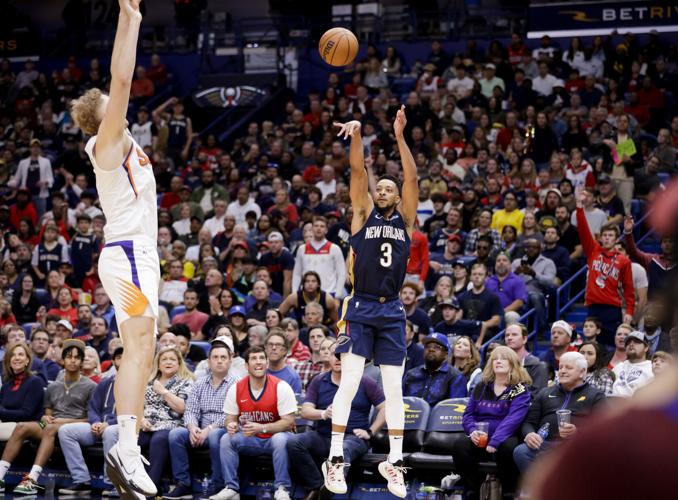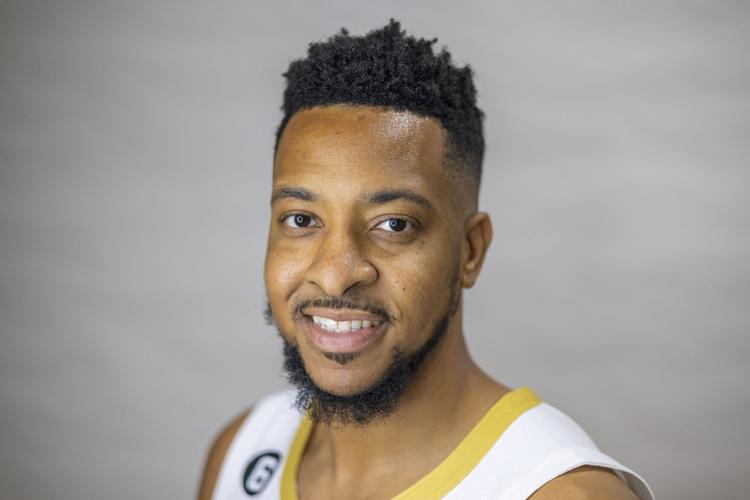I’m a newcomer to New Orleans, but I am grateful to now call it home: to play basketball here, live here with my family and have the chance to be a part of this community. And when I think about community, I immediately think of my mom and all that she has done to create a better life for my family and a better society for others. I see the same love and heart in this city and state — and I know it can be invested in our shared prosperity. That starts with kids.
Most people don’t know that the U.S. is the only country in the world that sentences children under 18 to life in prison without parole — a practice condemned by international law. And the problem is most acute right here: Even though the Supreme Court has ruled that sentencing children to die in prison is unconstitutional in all but the rarest of cases, since 2012, Louisiana has condemned three times more children to life without parole than any other state. 93% of those children are Black. And while they are only 40% of young people across the state, Black Louisianans make up more than 80% of the state’s incarcerated juvenile population.
These are just a few of the data points telling us we need to reform our practices and address the systemic inequities that persist all around us.
We can start by renewing our commitment to juvenile justice and Louisiana’s children. We can make sure that good laws like the 2016 Raise the Age legislation are protected from rollbacks — so 17-year-olds across the state are treated like the children they are, not automatically tried as adults. We can put an end to the heinous idea of housing children at the Louisiana State Penitentiary at Angola. We can support the work of advocacy organizations like the Louisiana Center for Children’s Rights that are helping lead reform efforts, especially as we prepare for the start of the legislative session in April. And we can fight the misconception that being fair to kids is responsible for increased violence, when the evidence tells us it is social and economic instability driving the change.
Let me be clear: Public safety and criminal justice reform are not mutually exclusive. They go hand in hand.
Just as we advocate for sensible criminal justice policy, we must also tackle violence and promote accountability. Many public safety experts agree that community-based violence intervention programs and support for crime survivors are more effective at reducing violence. These approaches also better reflect what most survivors actually want: solutions that are preventive, rehabilitative and effective in communities impacted by violence. In case that wasn’t reason enough for change, harsh policies like juvenile life without parole are ineffective and fiscally irresponsible; in 2017, it cost $156,570 to incarcerate a young person for one year — six times the cost of one year at LSU ($24,768).
Why do I care? Because CJ at 31 is not the same as CJ at 15. In fact, as a teenager, I came close to making some poor decisions that could have cost me my future. As I reflect on my youth, I am clear that I was able to navigate the forks in the road we all reach because of my parents’ love and care, my brother’s guidance and a lot of strong positive influences in my life.
Children have a profound ability to change as they grow, even after offending in their youth. Once they mature and age out of adolescence, their involvement in crime typically declines. And despite the familiar calls to unwind juvenile reforms, research shows that the number of youth arrested for violent crime continues its three-decade decline — giving hope to advocates and experts pushing for more effective safety interventions that build support into accountability.
The challenges of the last few years have exposed and exacerbated our country’s fault lines: the COVID-19 pandemic, tragic acts of racial injustice and a rise in violence through which historically underserved communities have been most impacted. These realities demand that we build systems of safety and justice for all of us. We need to invest in our children and their futures.
An important first step was making our voices heard on Election Day. Our votes matter. We get to have a say in how we are served and supported, and we must be part of the change our communities need to build the safety that all Louisianans deserve.
CJ McCollum is a professional basketball player and shooting guard for the New Orleans Pelicans. Since 2021, he has served as the President of the National Basketball Players Association. As an ESPN analyst, he also hosts a weekly podcast, "The CJ McCollum Show."


